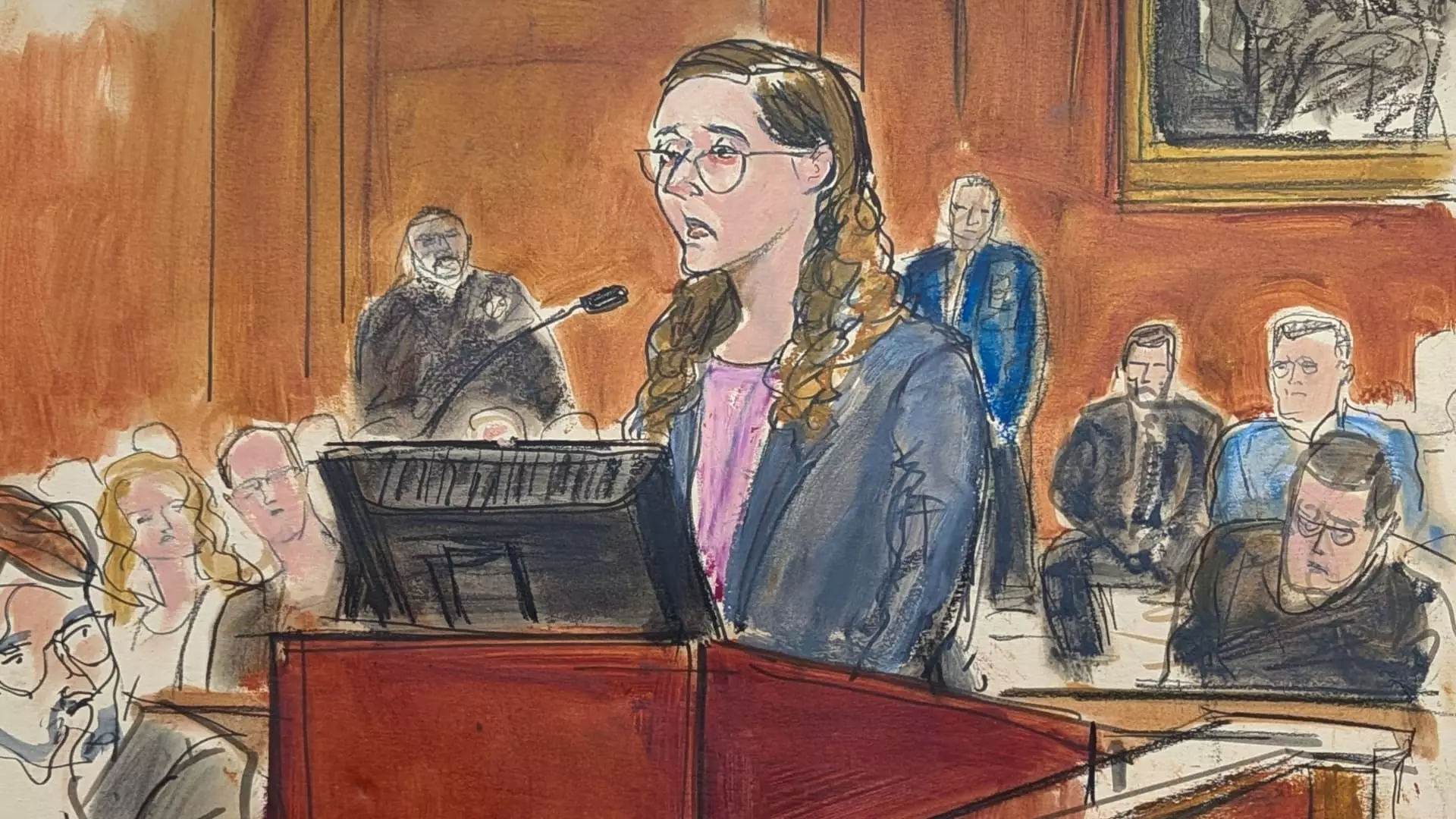The sentencing of Caroline Ellison has been one of the most high-profile developments in the aftermath of the FTX collapse, a case that has raised critical issues regarding accountability, cooperation, and the consequences of involvement in white-collar crime. Ellison, who served as the CEO of Alameda Research, a hedge fund closely linked to FTX, was handed a two-year prison sentence by U.S. District Court Judge Lewis Kaplan. This decision, along with a forfeiture order of $11 billion, underscores the severity of the fraud that transpired within this once-prominent cryptocurrency exchange.
Ellison’s sentencing is not just a legal consequence for her actions but also a reflection of the court’s stance on fraud within the financial sector. Judge Kaplan emphasized that this case represents possibly the largest financial fraud in U.S. history, which inherently calls for a punitive response to deter similar misconduct in the future. While federal guidelines suggested a more lenient three years of supervised release and a lack of jail time, the judge’s decision highlights a broader legal narrative: fraud, particularly in the burgeoning cryptocurrency domain, cannot be taken lightly.
The courtroom was filled with emotions as Ellison expressed regret and sorrow during her statement, indicating that the weight of her decisions has deeply affected her. This emotional plea reveals the human aspect often overlooked in financial crimes — the consequences extend beyond legal repercussions, impacting personal lives and reputations irrevocably.
One of the key takeaways from Ellison’s case is the value placed on cooperation with authorities. The prosecution lauded her truthfulness and willingness to aid the investigation against Bankman-Fried. This cooperation not only secured her a reduced sentence but also contrasted sharply with Bankman-Fried’s defensive tactics. His choice to go to trial has resulted in a significantly harsher outcome: a 25-year prison sentence. This dichotomy raises an important question about the justice system: is cooperation being incentivized to an extent that it undermines the seriousness of the crimes committed?
Ellison’s sacrifice for cooperation came at a steep emotional cost. As noted by Judge Kaplan, she exhibited genuine remorse for her actions, further blurring the lines between personal accountability and the complexities of criminal justice. However, this scenario may create a precedent where individuals facing similar charges might feel pressured to cooperate, regardless of their true level of involvement, potentially distorting the notion of justice.
The fallout from the FTX scandal has not just affected the individuals involved but has also sent tremors through the entire cryptocurrency landscape. The sentiment surrounding cryptocurrency exchanges has shifted dramatically, with an increasingly skeptical public and regulators eyeing these platforms with wariness. The actions of Bankman-Fried and Ellison have cast a long shadow over an industry striving for legitimacy.
It is essential to recognize that the repercussions extend beyond criminal charges; they speak to broader issues of trust within financial systems, especially in an industry built on the promise of decentralization and transparency. If the individuals entrusted with managing vast sums of money are willing to engage in deceitful practices, it raises fundamental concerns about the safety of consumer investments.
As we witness the aftermath of Ellison’s sentencing, it is clear that the FTX case will serve as a cautionary tale for future generations of entrepreneurs and investors in the cryptocurrency space. The balance between accountability and leniency, especially in the context of cooperation with authorities, remains a complex landscape fraught with moral and ethical dilemmas.
Ellison’s situation illustrates the intricacies of white-collar crime and the differing paths taken by individuals caught in similar webs. The court’s focus on deterrence reveals a commitment to addressing the malaise of fraud, especially within industries that thrive on innovation but often operate in murky regulatory waters. This high-stakes drama isn’t just about punishment; it’s about the lessons learned and the moral compass that future leaders in finance and technology must navigate. As more former FTX executives await sentencing, the broader implications of these court decisions will continue to shape the evolving narrative of accountability in the cryptocurrency sector.

